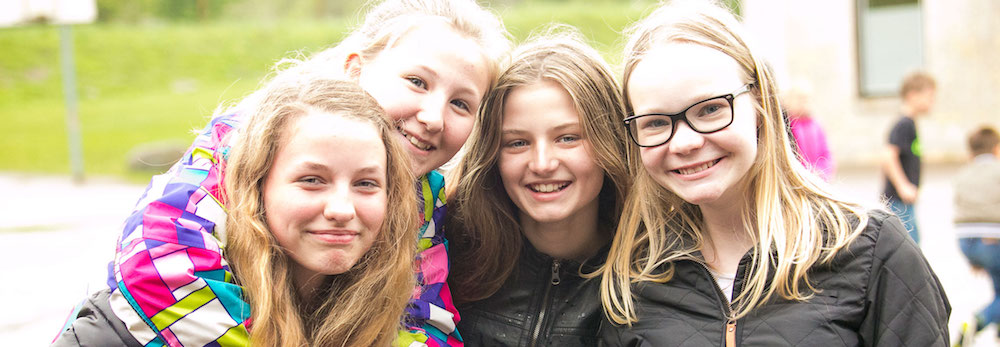(Editor’s note: You can see Pt. 1 of our guide to Copenhagen schools here. Also, the first version of this post inadvertantly omitted Berkerød Gymnasium. That information has been added.)
It’s a fundamental reality of being an expat: One of the biggest challenges for English-speaking expat families – even for well-paid corporate nomads – is finding satisfactory, English-language international schools.
Such schools cater to expat students, with curricula tied to the host nation in question, or an international education organization such as Edexcel, Cambridge International Examinations, and International Baccalaureate; if you’re curious about the International Baccalaureate program, Dispatches Europe has a primer for your convenience.
Wherever you’re headed, do not wait to get there before starting the application process with your preferred international school, which can be lengthy.
Copenhagen is not only the national capital of Denmark, but is also the cultural anchor of its home nation and of Scandinavia, one on par with Amsterdam, Barcelona and Vienna. Fashionistas have the biannual Copenhagen Fashion Week, the largest fashion week in Northern Europe, while art lovers can visit the Statens Museum for Kunst to the view the works of Rubens, Picasso, and Superflex.
Music fans have nothing to worry about in Copenhagen. The city’s jazz scene is strong, as is its K-Town punk and hardcore community. And of course, there’s the Copenhagen Concert Hall, the home of the Danish National Symphony Orchestra, and the second-most expensive concert venue ever built, behind Hamburg, Germany’s Elbphilharmonie.
Finally, Copenhagen boasts two of the oldest amusement parks in the world, Dyrehavsbakken (established in 1583) and Tivoli Gardens (opened in 1843). Admission to Dyrehavsbakken is always free, and Tivoli has both the oldest rollercoaster and Ferris wheel in operation today.
There are so many schools in the Copenhagen metropolitan area that we’ve had to break this guide up into two parts.
The city has some of the most sophisticated international schools in Europe both in quality of education and in cutting-edge facilities, many of which are new.
Also: the fees for each school are in Danish krone (ISO currency code DKK; dansk krone), as Denmark negotiated its right to opt-out of the Euro via the Maastricht Treaty of 1992. Though there has been some interest in reconsidering the opt-out since then, the Danes in general stand firm with the krone.
 Birkerød Gymnasium: Birkerød Gymnasium is an upper-secondary school a 25-minute train ride north of Copenhagen. Birkerød has a total of 1,100 students enrolled in two national programmes or one of the international programmes offered: the one-year pre-IB and the two-year IB Diploma Programme.
Birkerød Gymnasium: Birkerød Gymnasium is an upper-secondary school a 25-minute train ride north of Copenhagen. Birkerød has a total of 1,100 students enrolled in two national programmes or one of the international programmes offered: the one-year pre-IB and the two-year IB Diploma Programme.
So, there are classes in English and Danish.
In the English track, Birkerød has about 300 pre-IB and IB Diploma students representing 50 nationalities. Most are Danish students from international school backgrounds – abroad and/or in Denmark – and foreign students living in Copenhagen. Of those 300, about 70 are in the boarding school.
This is one of the largest and oldest IB world schools in Denmark.
- Fees (2017-18 academic year): Birkerød is free, paid for by taxpayers. However, the school administration requests that parents donate to the Culture Fund, which “contributes to the purchases of art for the school, literature, and other things that enhance and improve the cultural life” at the school.
- Boarding School: Monthly fee (if under the age of 18) from August to June (11 months).
Minimum pr. month DKK 1.900 Maximum pr. month DKK 4.850. - Boarding school deposit: DKK 6.000
- You can get all the details on boarding school fees here.
- Requirements: Print, complete and submit application with required documentation
- Application Deadline: 1 March and you can apply here
- Contact: The IB office here
- Website: Birkerød (the landing page is in Danish, but other pages are in English
 NGG International School: NGG International School was established in 1996 “to answer the growing demand for world-class education in English for the many international families working in the around the area” north of Copenhagen.
NGG International School: NGG International School was established in 1996 “to answer the growing demand for world-class education in English for the many international families working in the around the area” north of Copenhagen.
About 240 students between 4 and 16 attend NGG, where primary students learn under the International Primary Curriculum, and secondary students are educated under the Cambridge programme.
Forty nations and 80 languages are represented
- Fees (2017-18 academic year): DKK 5,100 monthly tuition fee for students in Early Years programme, DKK 2,500 monthly tuition for first child in registered in Years 1 through 11;
DKK 100 fee for late tuition payment; DKK 3,000 deposit, refundable within year of demission; full schedule of fees here - Requirements: Print, complete and submit application with required documentation
- Application Deadline: Ongoing enrollment
- Contact: [email protected]
- Website: ngg.dk/international
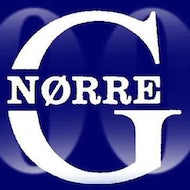 Nørre Gymnasium: About 10 kilometres away from Copenhagen’s heart is Nørre Gymnasium, NØRRE G for short. Nearly 1,100 students from 40 nations attend the secondary school, 900 of whom follow the Danish curriculum while the rest tackle the IB programme.
Nørre Gymnasium: About 10 kilometres away from Copenhagen’s heart is Nørre Gymnasium, NØRRE G for short. Nearly 1,100 students from 40 nations attend the secondary school, 900 of whom follow the Danish curriculum while the rest tackle the IB programme.
NØRRE G’s focus within the IB programme is to supply students “with an international environment of a wide variety of different ethnic backgrounds in which to develop intercultural relations and tolerance while at the same time respecting the students’ own cultural inheritance.”
- Fees (2017-18 academic year): None; the school is publicly funded
- Requirements: Print, complete and submit application with required documentation
- Application Deadline: 1 March
- Contact: [email protected]
- Website: norreg.dk/en
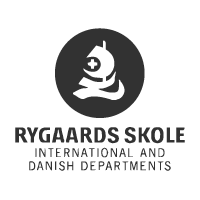 Rygaards International School: Founded in 1909 with 12 students by the sisters of the Religious of the Assumption, Rygaards International School is now home to more than 1,000 students from 80 nations, all the while still following “the aims and aspirations” of providing quality education under a Christian setting.
Rygaards International School: Founded in 1909 with 12 students by the sisters of the Religious of the Assumption, Rygaards International School is now home to more than 1,000 students from 80 nations, all the while still following “the aims and aspirations” of providing quality education under a Christian setting.
Rygaards’ secondary school uses the National Curriculum for England, with IGCSE examinations given to Year 11 students. The primary school also uses the National Curriculum for England.
The school “sees as its purpose, in co-operation with parents, to practice a form of educating which aims to build up the self-confidence, sense of values, and all-round personal development of the individual student.”
- Fees (2017-18 academic year): DKK 33,000 annual tuition fee; DKK 10,000 deposit; DKK 1,500 registration fee; full schedule of fees here
- Requirements: Complete and submit online application with required documentation; take an entrance test for proper placement
- Application Deadline: Ongoing; entrance based on space available
- Contact: [email protected]
- Website: rygaards.com
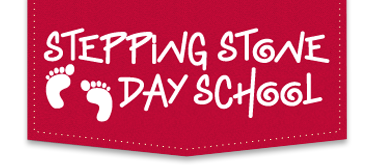 Stepping Stones: Stepping Stones is for the littlest ones in your family, and was established “to serve the needs of the International Community in Denmark.”
Stepping Stones: Stepping Stones is for the littlest ones in your family, and was established “to serve the needs of the International Community in Denmark.”
Every student enrolled learns English as an additional language, all supported by the school’s “diverse, child-centered curriculum and… English speaking staff.”
The curriculum is anchored around the English Early Years Foundation Stage Curriculum, preparing little ones for the IB Primary Years programme at international schools in Copenhagen and elsewhere.
Class sizes are 10 to 18 per class, and students one to five years of age are accepted into Stepping Stones.
- Fees (2017-18 academic year): DKK 14,000 first-time payment fee; DKK 5,600 –
DKK 6,940 monthly tuition fee, depending on grade level; DKK 350 late fee for monthly tuition - Requirements: Complete and submit online waiting list application; await further instruction from school
- Application Deadline: Ongoing; there is a waiting list
- Contact: [email protected]
- Website: steppingstones.dk
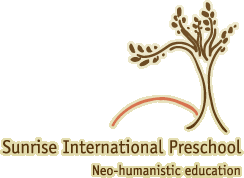 Sunrise International Preschool: Like Stepping Stones, Sunrise International Preschool is open to the littlest ones in your family. The school was established in 1980 “by a group of parents inspired by neo-humanist education,” and was originally located in a playschool on Østerbro.
Sunrise International Preschool: Like Stepping Stones, Sunrise International Preschool is open to the littlest ones in your family. The school was established in 1980 “by a group of parents inspired by neo-humanist education,” and was originally located in a playschool on Østerbro.
In 2004 Sunrise moved to its current home “in a large and beautiful villa with a lovely garden in Hellerup.”
Sunrise’s mission is to provide a warm and supportive environment where “the full potential of each child can be developed and expressed” while enabling the children to love and appreciate the uniqueness of themselves and of others.
Awareness of the world, personal and social development, and other tasks in building the foundation for the preschool’s students to shine are also part of the mission.
- Fees (2017-18 academic year): DKK 750 admission processing fee; DKK 10,500 one-time application fee for first child, DKK 8,000 for the second; DKK 10,300 one-month advance deposit for children below three years of age, DKK 8,400 for those three years of age and above; DKK 123,000 annual tuition fee for those below three years of age, DKK 100,800 for those three years of age and above
- Requirements: Download, complete and submit application with required documentation and fee
- Application Deadline: Ongoing; there is a waiting list; entrance based on space available
- Contact: [email protected]
- Website: sunrisepreschool.dk
Lifestyle journalist. Born in Louisville. Raised in Kansas. Where I lay my head is home.


